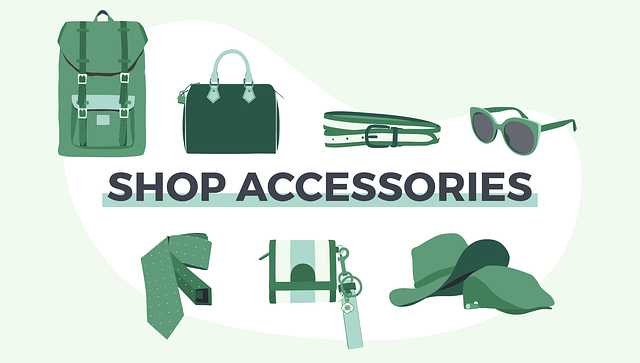In today's digital world, securing online identity is crucial for whistleblowers, activists, and small business entrepreneurs. By employing secure browsing practices, including VPNs, trusted search engines, and anonymizing proxies, individuals can protect their privacy and prevent tracking or targeting. Small businesses can maintain security through regular browser updates, 2FA, ad blockers, and data backups. However, using anonymized browsers raises ethical considerations regarding transparency and accountability, necessitating compliance with local data protection laws and informed user consent.
In an era where online activities carry immense risks, securing browsing privacy becomes paramount for whistleblowers, activists, and especially small business entrepreneurs. This article explores the critical need for anonymity in these contexts, delving into common privacy protection methods. We offer a comprehensive guide on best practices for secure browsing, balancing legal and ethical considerations unique to entrepreneurs. By implementing these strategies, small business owners can safeguard their online activities while preserving their privacy and that of their clients.
- Understanding the Need for Anonymity in Whistleblowing and Activism
- Common Methods to Protect Online Privacy and Anonymity
- Best Practices for Securing Browsers: A Comprehensive Guide
- Legal and Ethical Considerations for Small Business Entrepreneurs Using Anonymized Browsers
Understanding the Need for Anonymity in Whistleblowing and Activism

In the digital age, where online activities can leave a lasting digital footprint, securing one’s identity has become paramount for whistleblowers and activists. These individuals often find themselves at risk due to their efforts to expose corruption or advocate for change. Protecting their anonymity is not just a matter of privacy but also a vital strategy to safeguard them from potential retaliation, harassment, or even physical harm. By employing secure browsing practices, whistleblowers can ensure that their online activities remain confidential, enabling them to gather and share sensitive information without fear of exposure.
For small business entrepreneurs who engage in advocacy or wish to maintain privacy while operating online, understanding the need for anonymous browsing is crucial. It allows them to protect their personal and business identities, fostering a safer environment for sharing ideas and engaging in discussions without worrying about being tracked or targeted. This practice is essential in preserving the freedom of speech and ensuring that voices advocating for change can do so securely.
Common Methods to Protect Online Privacy and Anonymity

Protecting online privacy and anonymity is crucial, especially for whistleblowers and activists who need to communicate securely without leaving digital footprints. Common methods include using Virtual Private Networks (VPNs) to encrypt internet traffic, ensuring secure browsing through trusted search engines that respect user privacy, and employing anonymizing proxies to mask IP addresses. Additionally, small business entrepreneurs can adopt secure browsing practices by utilizing secure connections, regularly updating software to patch security vulnerabilities, and avoiding insecure public Wi-Fi networks.
These measures help maintain digital anonymity, making it harder for trackers or surveillance entities to identify users. VPNs, for instance, reroute internet traffic through encrypted servers, hiding the user’s actual IP address. Similarly, anonymizing proxies act as intermediaries, further obscuring a person’s online identity. Together, these tools empower individuals to engage in secure browsing and protect their sensitive information, ensuring that their online activities remain confidential, especially when navigating complex digital landscapes.
Best Practices for Securing Browsers: A Comprehensive Guide

Maintaining secure browsing habits is crucial, especially for small business entrepreneurs who often find themselves handling sensitive information. A robust security strategy starts with keeping browsers up to date. Regular updates not only patch security vulnerabilities but also incorporate enhanced privacy features that protect against tracking and data leaks. Employing a Virtual Private Network (VPN) adds an extra layer of anonymity and encryption, making it difficult for malicious actors to trace online activities back to the user or their organization.
Two-factor authentication (2FA) for all accounts further fortifies security measures. This practice ensures that even if a hacker obtains a password, they still need access to a secondary form of identification, like a code from an app on your phone, to gain entry. Using secure browsers with built-in ad blockers and privacy extensions also prevents tracking scripts from collecting data about users’ online behavior. Additionally, regular backups of important data ensure that even if a device is compromised, no sensitive information falls into the wrong hands.
Legal and Ethical Considerations for Small Business Entrepreneurs Using Anonymized Browsers

Using anonymized browsers for secure browsing is a powerful tool for small business entrepreneurs, especially those dealing with sensitive information or operating in repressive environments. However, there are crucial legal and ethical considerations to keep in mind. These tools can protect users from tracking and data collection, enhancing privacy and security. Yet, they also raise questions about transparency and accountability. Entrepreneurs must ensure that their use of anonymized browsing does not infringe on the rights of others or violate any local laws regarding data protection and privacy.
It’s essential to strike a balance between maintaining secure browsing and upholding ethical business practices. Small businesses should inform themselves about the legal framework in their jurisdictions, respect user consent, and be transparent about data handling. By doing so, they can leverage anonymized browsers as a legitimate security measure while navigating the ethical landscape of digital privacy responsibly.
For small business entrepreneurs, securing their online presence is paramount, especially when dealing with sensitive information. Anonymizing browsers offers a robust solution, providing an extra layer of protection for both whistleblowers and activists. By employing best practices and legal considerations outlined in this guide, individuals can navigate the digital landscape securely while preserving their anonymity. This approach is crucial in fostering a culture of transparency and accountability without compromising privacy.
